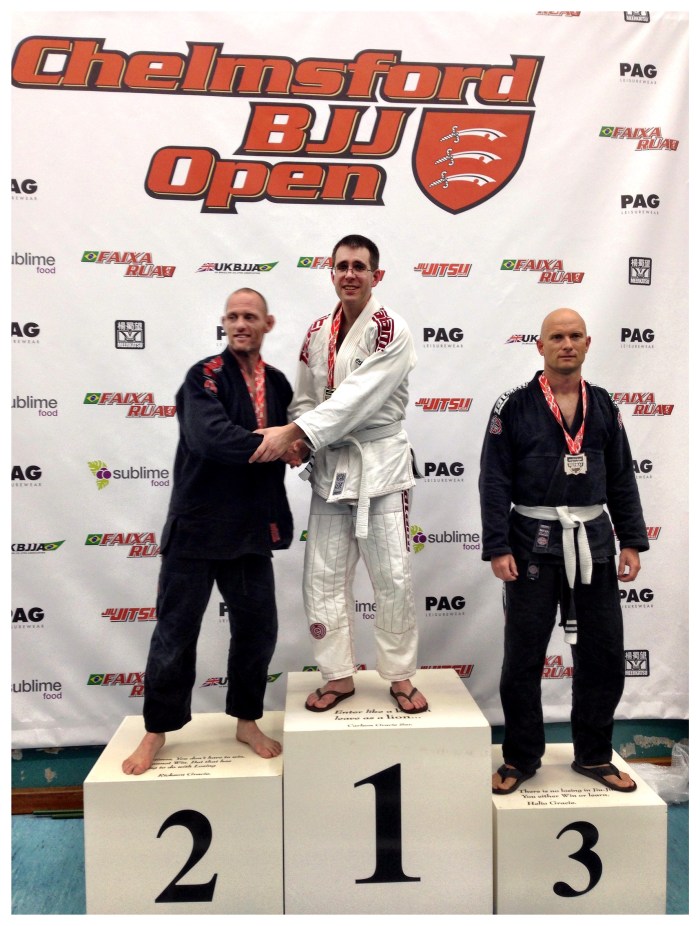
In the classic jiu-jitsu cliche ‘You win or you learn’. Winning, of course, is more fun — but learning is important too. At the Brighton Open I lost twice and learnt that it’s embarrassing to get on the podium as the third man in a three person bracket.
It’s an interesting loss for several reasons. First, I’m surprised by how annoyed I am. Not at my opponents; who won fair and square by being better on the day and were, as usual, genuinely nice blokes. But having been on a gentle upward trajectory of losing, getting better, winning a bit more, getting better, it feels like a backward step. Which, intellectually, I know is foolish. There are far too many random factors and the sample size is too small to draw conclusions from (win or lose).
Second, and closely related, I wasn’t in the right mental space. I don’t think I was overconfident coming off a win — although there might have been a bit of that. But I wasn’t properly focused. In my first match I was, for quite a long time, behind by a few advantages, having managed to deny a few passes before the points. We were both getting tired, he was breaking my grips, but I was able to reestablish them. If I could have put together a sweep I could have won. I think it came down to who was more present in the moment, wanting it more, and it wasn’t me this time, which I don’t feel good about.
Similarly, in my second, I got guard pulled almost directly into a triangle (which was a nice move on the part of my opponent, which I hope I can add to my repertoire at some point). I was a half second slow responding to the pull, but got into a decent posture and started defending the triangle. We struggled for a while and I didn’t make any glaring technical mistakes. But I was continuously just a bit slow and not aggressive enough in trying to get out and turn it into a guard pass. One of the things I need to get better at is recognising the moments when I need to commit 100% effort.
So, I have a few technical things to work on, especially responding to a guard pull and revisiting triangle defence. I also have a nice stretch of time until the Southend Open on the 25th September. Plenty of room to get to the gym, eat well, improve my cardio and, most importantly, get the hours in on the mats. All of which, I hope, will pay off, and also get my head on straight.


